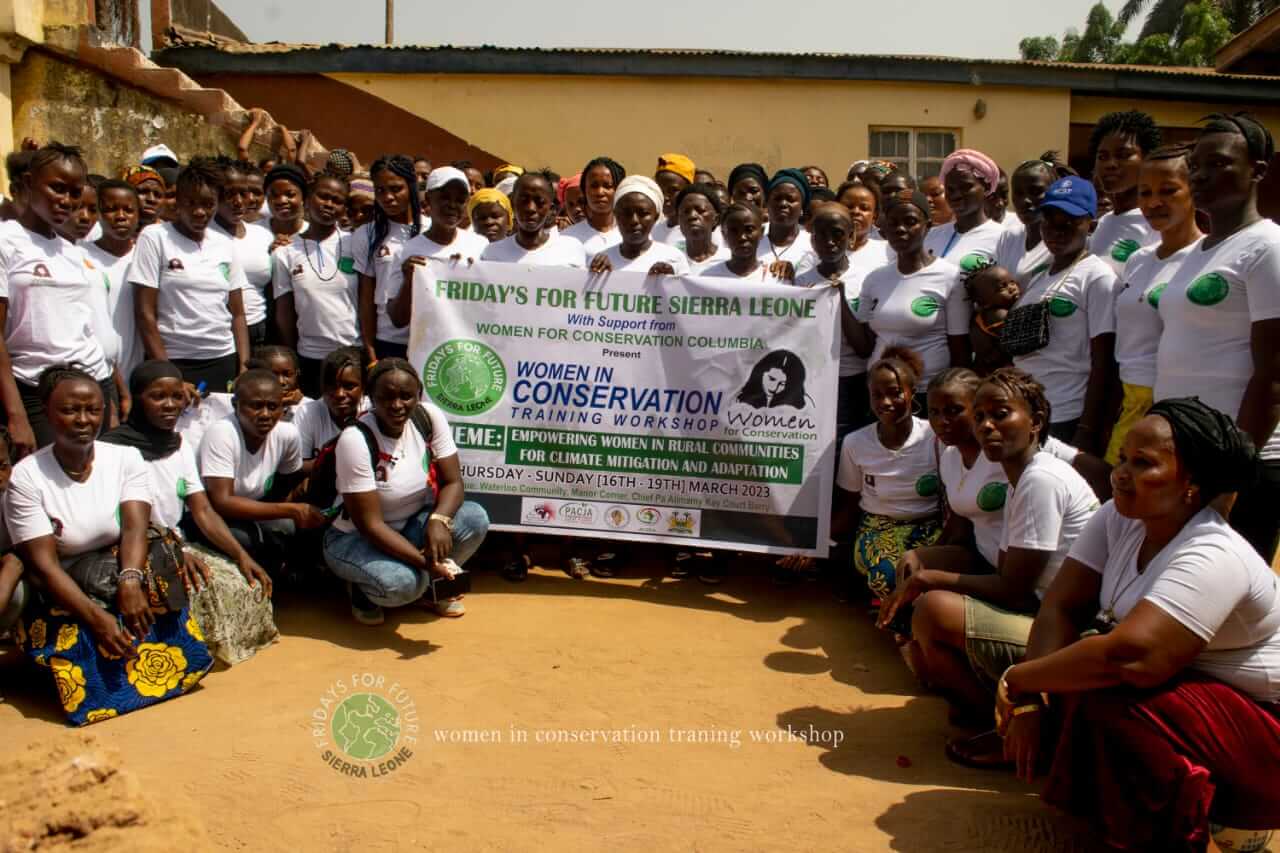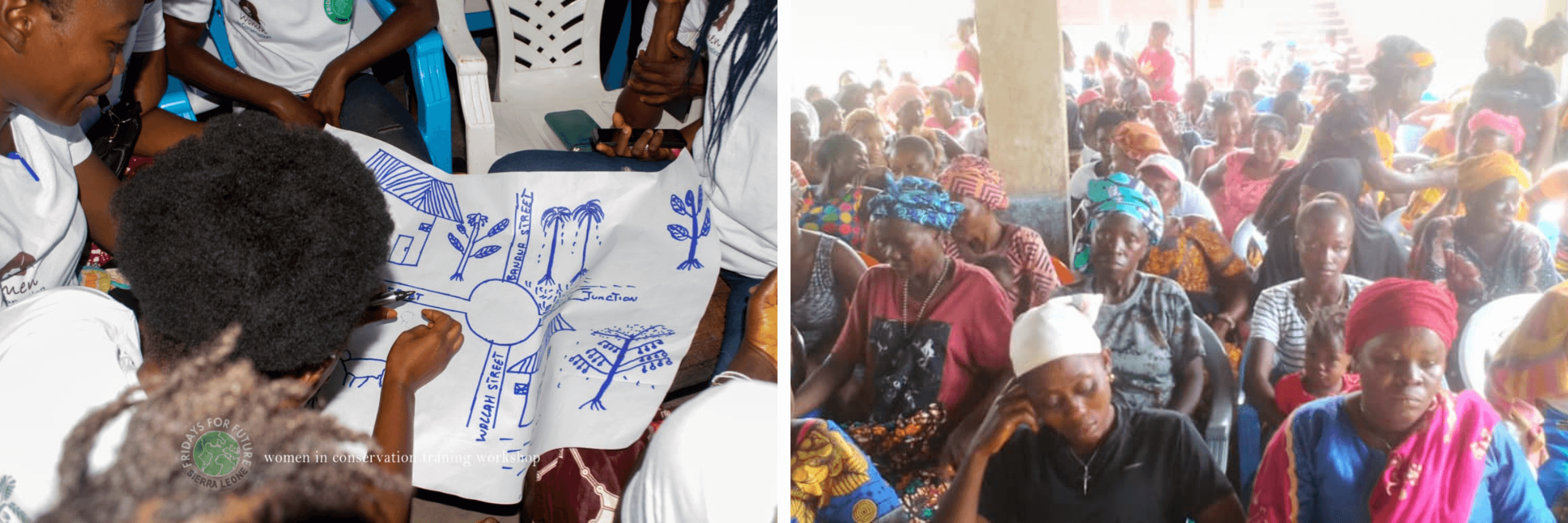Women Reforesting Sierra Leone: A Climate Justice Success Story
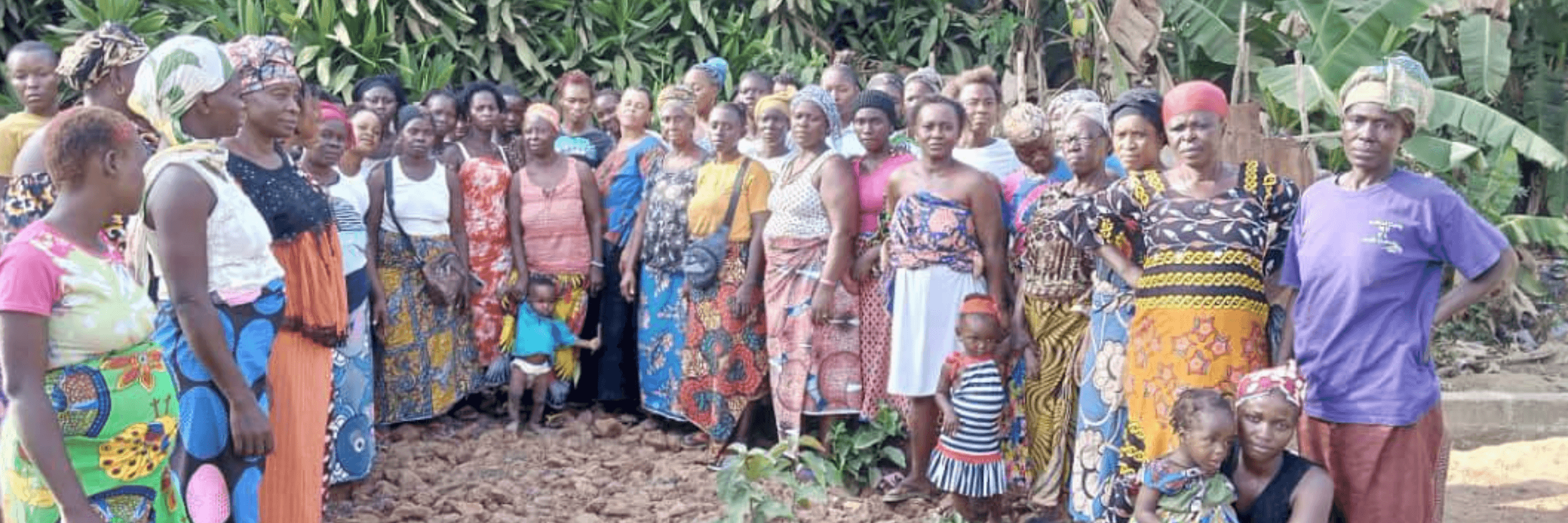
A Beacon of Hope in a Vulnerable Land
Nestled along the Atlantic coast of Africa, Sierra Leone emerges as a jewel of biodiversity, yet it stands among the 10% of countries most vulnerable to the ravages of climate change. While the African continent unfairly bears the brunt of a crisis it has least contributed to, the resilient women of Sierra Leone are rising to the occasion. Women for Conservation (W4C) has partnered with local activist Roseline Mansary and Fridays for Future Sierra Leone to form an alliance sowing the seeds of change, quite literally. In our first year of partnership W4C supported the training of 100 women in reforestation, which resulted in the planting of over 1500 trees.
Planting the Seeds of Change
In a spirited four-day workshop in the Waterloo Community, 100 women and girls united under the banner of environmental stewardship. The women learned about the predictive effects of climate change in their country, and the role of forests in protecting their families against climate change induced flooding, drought, heat waves, food shortage, and other severe weather events. They organized, built community, shared meals, and strategically planned tree planting locations in their communities.
The women were given seeds to propagate in their homes, nourishing them with composted fertilizer and the bright equatorial sun. Three months later, the saplings were ready to plant, and the women put their new skills to action, planting 1,500 seedlings of mangoes, chusu nut, peanut, orange, moriga and others during the course of 3 summer days. The women chose to propagate and plant these trees specifically because they are resilient to weather and many could provide nuts and fruit for community members in times of drought or food scarcity.
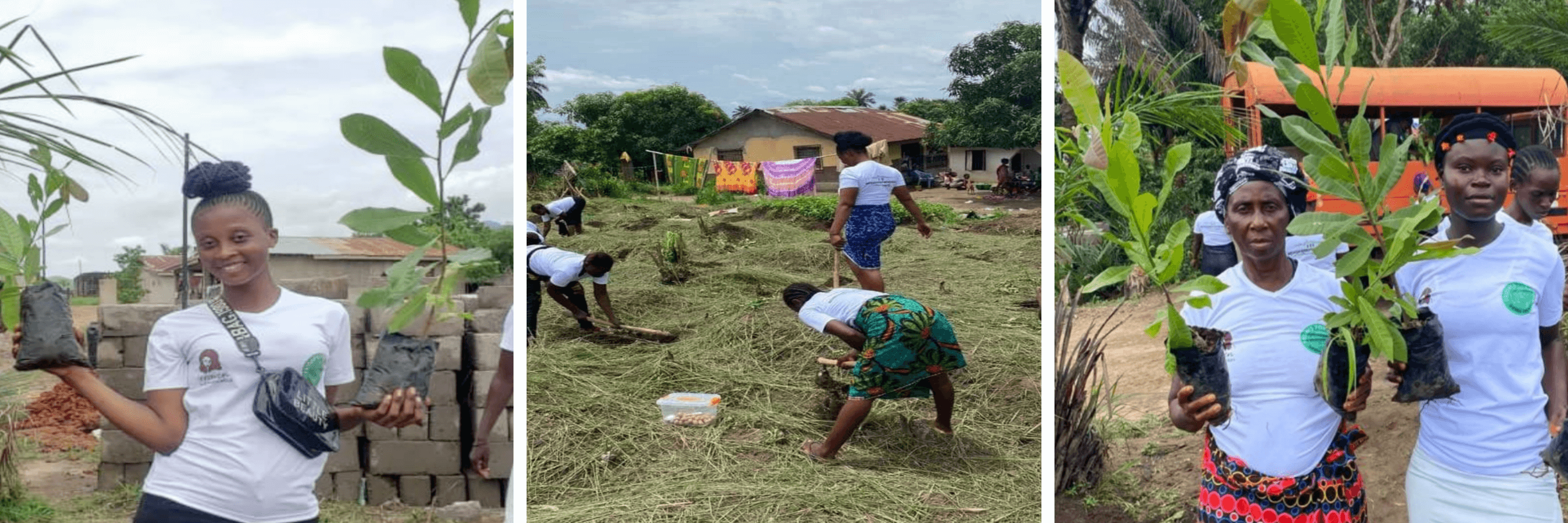
Wildlife Warriors: Protecting Endangered Species
The impact transcends the human realm, providing vital buffer zones for endangered wildlife. For example, the Critically Endangered Western Chimpanzee’s top threats in the region relate to deforestation and human encroachment, including habitat loss and poaching for bushmeat and the illegal wildlife trade. Despite global efforts to protect this charismatic primate, Western Chimpanzee populations continue to decline across Africa, and they have already been wiped out in Burkina Faso, Benin, Gambia, and Togo.
By planting forests across Waterloo, the community is safer from severe weather, drought, and food insecurity, directly combating poverty induced desperation which can often lead to the poaching of wildlife for bushmeat or the illegal pet trade. Other endangered wildlife with habitats buffering the Waterloo community include the Endangered Western red colobus, the Endangered Jentink’s Duiker, the Endangered Pygmy hippopotamus, leopard (vulnerable), and the white-breasted Rockfowl, which was recently rediscovered on the Freetown Peninsula and is considered as one of the most threatened birds in continental Africa.
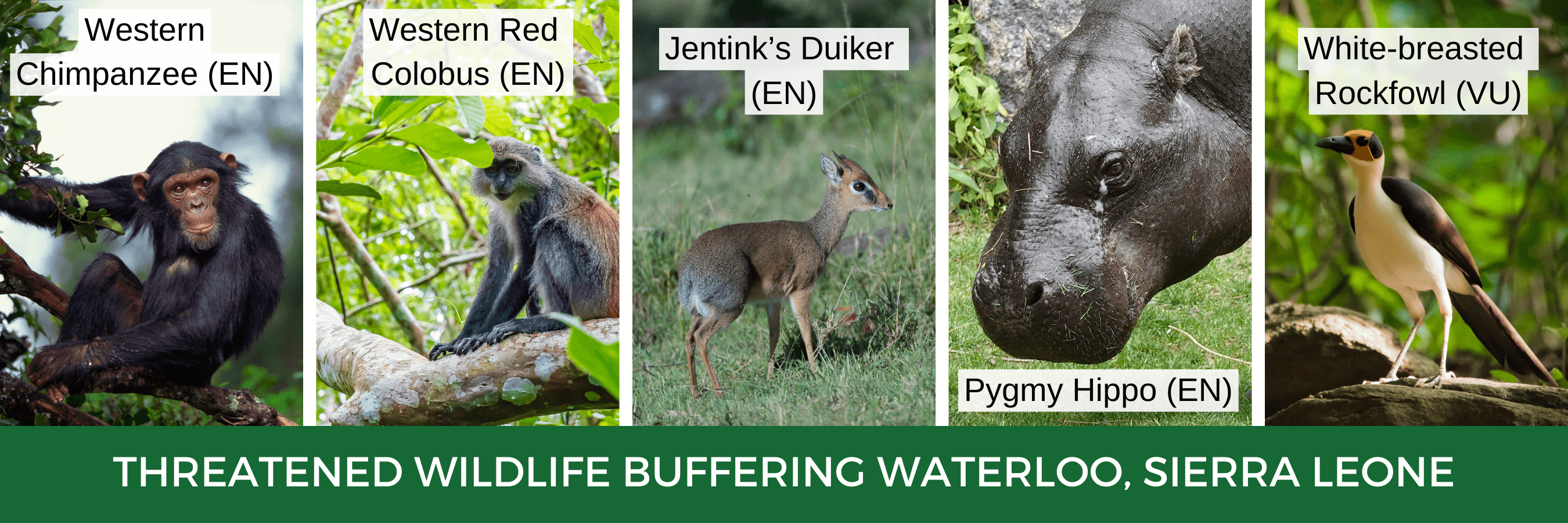
Your Support, Their Triumph
The success of this grassroots initiative is a testament to the power of community and collaboration. Yet, the journey has only just begun. As we witness the transformative impact of empowered women restoring their environment and safeguarding endangered wildlife, we are filled with hope and determination. Women for Conservation extends heartfelt gratitude to our community of supporters who make these projects possible.
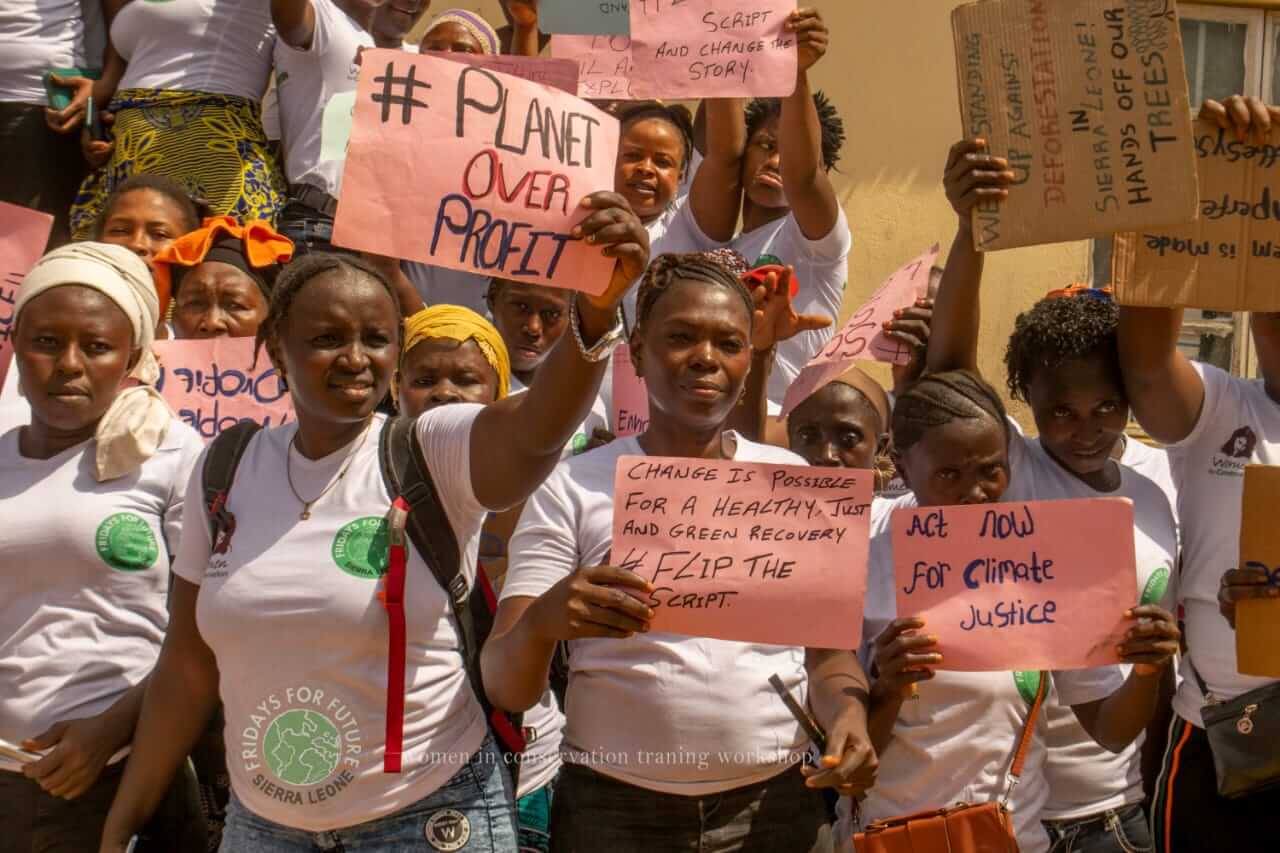
Join Us in Making a Difference
This is more than reforestation; it’s about resilience, empowerment, and safeguarding biodiversity for future generations. We invite you to be a part of this remarkable journey by donating to help us amplify our impact in Sierra Leone and beyond. Together, we can create a world where communities thrive, wildlife flourishes, and nature reigns supreme.
Donate Now and be a part of this transformative movement. Your contribution will help us continue empowering women, conserving wildlife, and building a sustainable future for all.
